If you have a lapsed National Registry Paramedic certification or lapsed state Paramedic license, including an equivalent state-recognized Paramedic certification, and want to gain National Registry Paramedic certification, you must meet the following requirements.
NOTE: If you have a current state license, visit the State Licensed Pathway.
State Licensed Pathway
Requirements for Certification
- Sixty (60) credits of continuing education that meets all requirements of the National Continued Competency Program within the past two (2) years.
- The National Registry accepts State EMS Office approved and CAPCE accredited education, education from EMS education programs, and U.S. accredited academic credit or college course. All education must be directly related to EMS patient care.
- Successful completion of the National Registry Paramedic Certification Examination.
- Copy of a lapsed state Paramedic license/certification if never nationally certified as a Paramedic and proof of a CAAHEP-accredited Paramedic program (programs completed January 1, 2013, and after).
- Verification of skills competency prior to the first expiration date.
- Skills verification must be completed by one of the following mechanisms between the date of issuance of national EMS certification and the first expiration date. If the candidate does not successfully demonstrate skills verification within the allocated timeframe, the candidate will not be allowed to recertify, and the certification will lapse.
- If the candidate affiliates with a National Registry Agency and has their skills competency verified (third-party) by their Agency’s Medical Director or Training Officer, this satisfies the requirement for re-entry.
- A State EMS Office or a State-Approved or CAAHEP-Accredited Education Program.
- Provide verification of their current, full, and unrestricted state license.
- With a current, full, and unrestricted state license to provide care, the candidate demonstrates minimum skills competency, as required by a state licensing body.
- Skills verification must be completed by one of the following mechanisms between the date of issuance of national EMS certification and the first expiration date. If the candidate does not successfully demonstrate skills verification within the allocated timeframe, the candidate will not be allowed to recertify, and the certification will lapse.
National Component Guides
Click below for the current National Continuing Competency Program (NCCP) model.
National 2025 NCCP Model
Local or State Component - 15 Credits
If specific local and/or state are not specified, these required credits are considered flexible content. You may use any state or Commission on Accreditation for Pre-Hospital Continuing Education (CAPCE) approved EMS–related education to fulfill these requirements.
Individual Component - 15 Credits
The individual credits are considered flexible content. You may use any state or Commission on Accreditation for Pre-Hospital Continuing Education (CAPCE) approved EMS–related education to fulfill these requirements.
Completion of a DOT Paramedic (NRP) Training Program must be completed after January 1, 1977.
All candidates for National Registry’s National EMS Certification at the Paramedic level whose Paramedic program began on or after January 1, 2013 must have successfully completed Paramedic education from an accredited program sponsored by the Commission on Accreditation of Allied Health Education Programs (CAAHEP) or one who held a valid Letter of Review (LOR) issued by the Committee on Accreditation of Educational Programs for the Emergency Medical Services Professions (CoAEMSP).
Application Process
To apply for a National Registry examination:
- Create your account/log in to your profile.
- Select the Paramedic Re-entry Application. Verify/update any personal information and follow the prompts through the application.
- Pay the application fee.
- Attach your lapsed state Paramedic license/certification (if applicable), add your continuing education, and attach the education certificates to your application.
- Monitor the progress of your application from your Candidate Dashboard in case additional action is needed. Once the National Registry approves your application and your “Examination” tile contains the message “Authorization to Test (ATT) received,” you can view your ATT and schedule your examination.
Expiration Dates
Initial expiration dates are determined by the date the candidate successfully completes the entire national certification process. Paramedic candidates completing the national certification process between the January 1 and June 30 will receive an expiration date of March 31 two years in the future. Individuals successfully completing the national certification process between July 1 and December 31 will receive an expiration date of March 31 three years in the future.
If you successfully complete the national certification process between January 1 - June 30 your initial certification date will be March 31 of 2 years in the future.
If you successfully complete the national certification process between July 1- December 31 your initial certification date will be March 31 of 3 years in the future.

